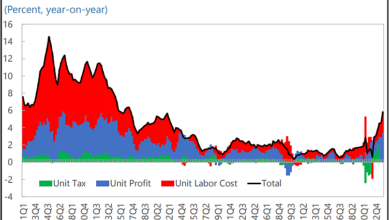North Carolina Legislature Cracks Down on Delinquent Local Governments

On June 21, the North Carolina State Senate overrode Governor Roy Cooper’s veto of SB 299, which imposes penalties on local governments that fail to file their financial audits within one year of the fiscal year’s end. The matter now moves to the State Assembly which overwhelmingly passed the measure in May. Timely financial reporting is not only a sign of good stewardship, but it is also necessary for effective monitoring of local government finance.
The last two cities to file municipal bankruptcy petitions, Fairfield, AL and Chester, PA, were substantially delinquent in releasing their financial audits. Neither was in compliance with the nine‐month deadline the federal government imposes for Single Audit reporting, which is required of all governments spending more than $750,000 of federal funds in a given fiscal year.
The one‐year threshold for penalties set by SB 299 is longer than the federal deadline, double the six‐month timeframe recommended by the Government Finance Officers Association, and three times as long as the four month deadline set by the North Carolina Local Government Commission (LGC).
The penalty SB 299 would impose is modest. If a county or municipality has failed to file its audit after one year, the state would withhold from its sales tax revenue distribution an amount equal to 150% of the cost of the required audit. According to state data, audit fees range from $5,000 or less for smaller communities to as much as $200,000 for larger cities and counties. The withheld sales tax revenue would be released by the state whenever the audit is filed or two years after the fiscal‐year end date, whichever comes first.
Although Governor Cooper’s veto message cited the financial hardships for smaller local governments, units affected by the measure are not necessarily one‐horse towns. For example, as of this writing, Caswell County had yet to file its 2021 audited financial statements, which were due to the State Treasurer on October 31, 2021. In its 2020 fiscal year, the County spent over $29 million and employed over 200 individuals.
Another non‐compliant government is Spring Lake, a suburb of Fayetteville with a population of 11,762. This entity has also not filed FY 2021 financial statements, but, unlike Caswell County, it is facing severe financial distress. In his FY 2022 budget message, Spring Lake’s town manager wrote:
The Town of Spring Lake is in a strained financial situation. Expenditures have exceeded revenues for the past several years, fund balance appropriations have been made each year in all funds to produce a seemingly balanced budget, and budgets that were adopted were not implemented.
After that, the LGC voted to assume control of the town’s finances. State Treasurer Dale Folwell who chairs the LGC said:
We want to save Spring Lake. We are here to assist the town to correct past mistakes and missteps, get on sound, sustainable financial footing, act in accordance with the law and provide confidence to residents that their hard‐earned tax dollars are being carefully and properly spent.
Perhaps if Spring Lake had met its financial reporting deadlines, problems could have been identified earlier and the state takeover could have been avoided.
LGC’s action in this case shows why North Carolina is a national leader in local government financial stability, with a relatively high proportion of cities and counties carrying top credit ratings. But it was not always that way.
In the late 1920s, North Carolina counties began suffering municipal financial distress due to excess borrowing and poor expenditure controls. During the Great Depression, many North Carolina local governments defaulted on their municipal bond obligations.
During this time Governor Max Gardner asked the Brookings Institution to evaluate state government operations and make recommendations for reform and reorganization. Brookings analysts recommended the formation of a dedicated state agency to oversee county and municipal finances.
In 1931, the state legislature implemented Brookings’ plan by creating the Local Government Commission. LGC approves all local bond issuances, sells debt to municipal bond investors, oversees annual local government financial audits, monitors county and municipal financial condition, and intervenes in cases of severe distress.
Delayed audits impede LGC’s oversight responsibilities and jeopardize the record of local government fiscal discipline built up over the last ninety years. As such it is reasonable for state officials to insist on timely audits and to create incentives for local governments to provide them.





